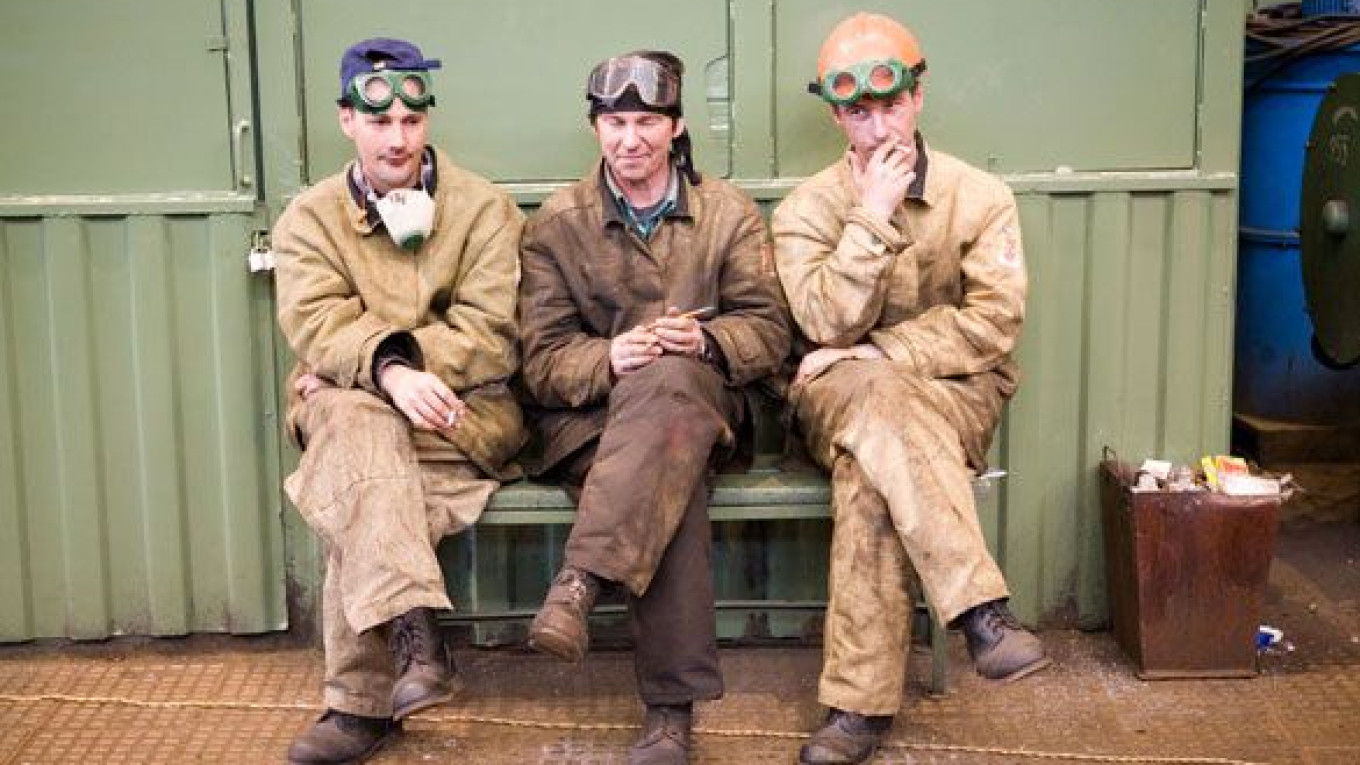The number of labor protests in Russia has increased sharply this year, propelling the total to its highest in five years, estimates released this week show.
The Center for Social and Labor Rights published those findings on its website Thursday.
There were 61 worker strikes and protests during the first three months of 2012. That compares with 53 during the same period last year.
Although the numerical increase is not large, protests have become more intensive.
In January and February 2011, fewer protesters participated in the demonstrations, the center reported.
A partner of the USAID program, the center has monitored labor conflict in Russia since 2008.
Center analyst Pyotr Bizyukov, who conducted the research, told Kommersant on Thursday that the number of protests might grow to between 40 and 45 a month.
"There are grounds to predict that summer 2012 might become a hot period for political protests," Bizyukov said, Kommersant reported.
The center's findings state that the protest over wages at the Benteler automative plant in the Kaluga region might be awarded the title of "protest of the month" because of its duration.
That protest began at the end of March and ended earlier this month.
More then 100 Russian employees of German-owned Benteler walked off the job.
They demanded a salary increase, saying that their wage was lower than that paid by other automobile plants in the region.
The plant's unions forced management to consider their demands after Governor Anatoly Artamonov stepped into the fray.
Boris Kagarlitsky, head of the Institute for Globalization, said the increase in protests in Russia is connected with the aftermath of the 2008 economic crisis.
The country weathered the crisis thanks to large financial reserves generated by high oil prices.
Kagarlitsky compared the situation in Russia to the one after the Great Depression in the United States.
"We survived, but things have not become better since then," Kagarlitsky said. "The only thing is that we don't have a progressive government."
Kagarlitsky contrasted the Russian leadership with the American administration of President Franklin D. Roosevelt, whose New Deal policies were aimed at restoring the failed U.S. economy in the 1930s.
Government-affiliated economist Mikhail Dmitriyev said previously that Russia might go through a second wave of economic crisis.
That could prompt political unrest and lead to social instability.
Although the majority of workers protesting conditions at their plants do not express political slogans, Kagarlitsky said their distrust of the government could be seen in the poor election results for the ruling United Russia party in the regions.
Kagarlitsky said the protesting workers might join forces with citizens demanding political reforms.
In Astrakhan, for example, drivers of local shuttle buses who protested Mayor Mikhail Stolyarov's plans to cancel their contracts with the city have expressed support for the mayor's rival, Oleg Shein of the opposition A Just Russia party.
Shein, who lost the mayoral election in March, is staging a hunger strike to call attention to his accusations that the election was rigged.
Analysts said attempts to prevent protests by independent unions would mobilize the Federation of Independent Unions, led by the seasoned Mikhail Shmakov.
Shmakov announced recently that his organization might be turned into a party to cooperate with United Russia on trade-union legislation.
A Message from The Moscow Times:
Dear readers,
We are facing unprecedented challenges. Russia's Prosecutor General's Office has designated The Moscow Times as an "undesirable" organization, criminalizing our work and putting our staff at risk of prosecution. This follows our earlier unjust labeling as a "foreign agent."
These actions are direct attempts to silence independent journalism in Russia. The authorities claim our work "discredits the decisions of the Russian leadership." We see things differently: we strive to provide accurate, unbiased reporting on Russia.
We, the journalists of The Moscow Times, refuse to be silenced. But to continue our work, we need your help.
Your support, no matter how small, makes a world of difference. If you can, please support us monthly starting from just $2. It's quick to set up, and every contribution makes a significant impact.
By supporting The Moscow Times, you're defending open, independent journalism in the face of repression. Thank you for standing with us.
Remind me later.


